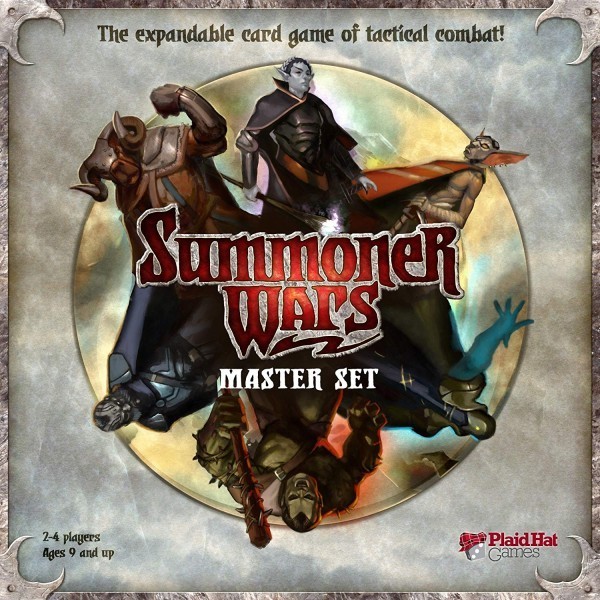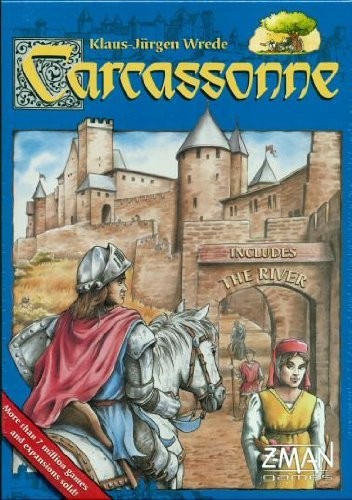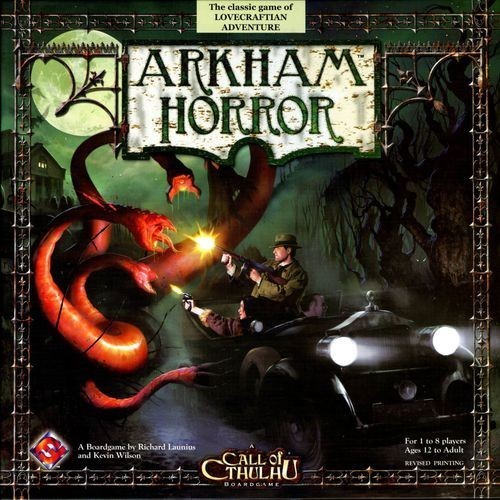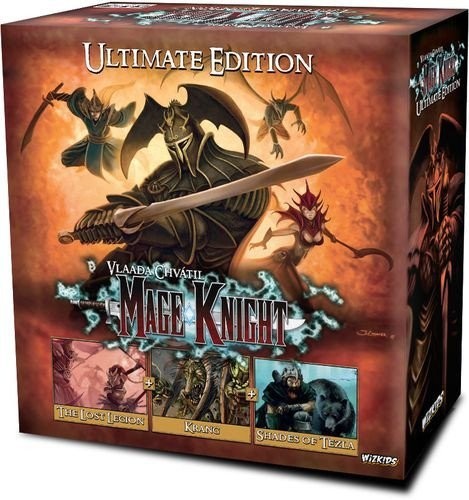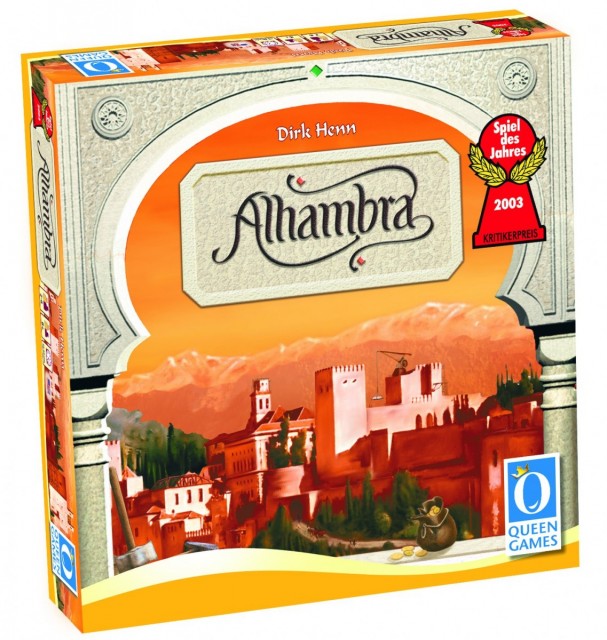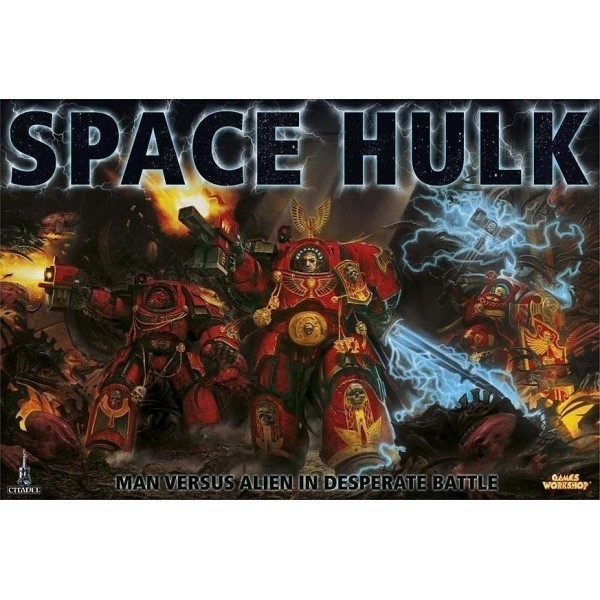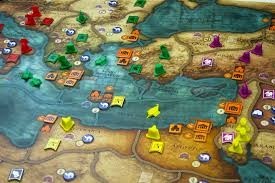 One thing that has often perplexed me about gaming culture generally is the attitude to cheats and, more specifically, to games where the set-up makes it very easy for cheats to prosper. Take Fury of Dracula for example: the original Games Workshop game made is really, really easy for the Dracula player to cheat and apparently players felt this was a poor aspect of the design. So much so that, as far as I can tell, when Fantasy Flight republished the game they put a lot of effort - and a lot of extra administration time and rules overhead - into solving this problem. Gamers, on the whole, seemed satisfied. But I remain baffled.
One thing that has often perplexed me about gaming culture generally is the attitude to cheats and, more specifically, to games where the set-up makes it very easy for cheats to prosper. Take Fury of Dracula for example: the original Games Workshop game made is really, really easy for the Dracula player to cheat and apparently players felt this was a poor aspect of the design. So much so that, as far as I can tell, when Fantasy Flight republished the game they put a lot of effort - and a lot of extra administration time and rules overhead - into solving this problem. Gamers, on the whole, seemed satisfied. But I remain baffled.
For one thing, if you do think you've got a cheating Dracula player, my initial response is to suggest you get a different Dracula player rather than to totally re-work the game to reduce the potential for cheating. This seems a far easier fix to me, and one that will likely mean you get a good excuse to eject the more mean-spirited among your group.
The other thing is that I'm yet to be convinced that cheating, providing it's done skilfully, is really that much of a terrible crime. Everyone claims that when they play games they're more interested in the play experience than the winning, and yet they're up in arms if they think someone might be cheating. But if you really only care about the experience of playing why does it matter so much, providing the cheating doesn't throw up impossible situations that aren't covered by the rules? If a cheat isn't caught and the game appears to proceed as it should, everyone still gets their game experience, after all. When I was a kid I can remember cheating at a game of Monopoly that was left out on the table overnight: I surreptitiously added a few big notes to my bank account when no-one was looking. The experience taught me that cheating doesn't pay because I realised when we resumed the game that my sureness of a win had sucked all the enjoyment and tension out of the game for me. But the point is that no-one else realised and the game played out as expected and altough I got my ill-gotten win, the other players enjoyed themselves just as much as they would if it were a level playing field. I'm not advocating cheating - I'm just saying that I think there are worse things people can do around a gaming table.
One of those worse things is a cheating-related behaviour that I've started to call "game abuse". Thankfully I've never had to experience it first hand but I've heard enough anecdotes from the gaming world to know that it exists, although I have little idea how prevelant it is. Both cheating and game abuse seek to lever the rules of the game for the unfair advantage of a single player. The difference between a cheat and a game abuser is that the latter isn't just in it to win themselves - they're in it to ruin it for all the other players at the same time.
I'll illustrate this concept with an example - one which, as it turns out was actually against the rules of the game involved, but it makes a good story. Apologies to whomever I heard this from - I can't give credit as I can't remember who it was, but it didn't happen to me. Anyway the example goes like this: six new players sat down to a game of Battlestar Galactica. Once the owner of the game had explained the rules and everyone had helped set-up the game, one of the players stated that he was a human, and in order to win all the other humans had to do was turn over their loyalty cards (this is expressley forbidden in the rules, as it turns out, although I doubt that would have deterred this scumbag). Anyone who wanted to keep their card a secret would therefore obviously be a Cylon and they could be disposed of right away. Whereupon the offending playing turned his card over. My memory does not extend to what happened next - whether other players joined him in this wheeze or whether they instinctively grabbed whatever blunt, heavy objects lay with in reach, rose en masse, and began to beat him severely. But the point is clear - by even revealing a single loyalty card the game had been cheapened, possibly ruined, for all the other players.
It's not hard to see what motivation lies behind this sort of nefarious behaviour. The player clearly wants to demonstrate their superiority not only over the other players, as a cheat does, but over the game designers, testers and publishers that put the game on the market as well. And it has to be said, unfortunately, that it's Ameritrash games that bear the brunt of this problem, because the enjoyment in these games usually goes beyond that of the simple pleasure of manipulating game mechanics and because they tend to have messier, more exploitable rules-sets. The corollary of this is that it tends to be Ameritrash haters who are game abusers - it makes them feel good to demonstrate how easily the games they hate can be spoiled for the other players. And of course they don't care if it is spoiled for the other players because it offers a salutory lesson in how pointless playing the game is in the first place.
Ultimately though I think almost any game is open to some form of this abuse, in the same way that it's virtually impossible to write software that manages to cover all the possible user actions and respond accordingly. Games are, by their very nature, fixed rules sets which can mesh badly when it meets the inventive and imaginative open minds of the gamers who play them.
So ultimately then, much like the cheat, the only possible response to game abuse is to make the same point: the problem isn't with the game, it's with the person playing it. And I remain perplexed as to why it is that gamers demand that designer and publishers go to great lengths, in some cases, to make their games as cheat-proof and abuse-proof as possible. If you cast your mind back to yesteryear chunks of hidden information (particularly hidden movement) was seen as being fairly innovative and was used not infrequently as a clever way of adding elements of bluff and mystery to games that would otherwise have been fairly straightforward combat or strategy games. It was particularly prevelant in wargames such as City-Fight but also put in apperaences in early Ameritrash games like Samurai Swords which had hidden allocation of money. And yet this sort of approach to gaming seems to have almost died the death in modern titles.
I believe very strongly that the history of the gaming hobby has lead, over time, to a marked increase in the quality of game design. But I believe equally strongly that it's a shame to totally bypass a particular mechanic simply because of a belief that a better or more modern way of achieving the same thing exists. As I've argued before, plastic and wooden pieces are relatively cheap now, but that in itself doesn't make a good reason to put plastic or wood in a game if flat cardboard chits would have a particular mechanical purpose to serve in a design. It's the same with hidden movement and resources: just because modern designers have cleverly found a way to mimic similar uncertainties, such as the various block wargames, doesn't mean that hiding things in the traditional - abusable - sense isn't a valid mechanic anymore. It just needs a little creativity to find its place in the gaming world.
 Matt is the founder of Fortress: Ameritrash. He is also a regular columnist for Board Game News.
Matt is the founder of Fortress: Ameritrash. He is also a regular columnist for Board Game News.
 Games
Games How to resolve AdBlock issue?
How to resolve AdBlock issue? 





